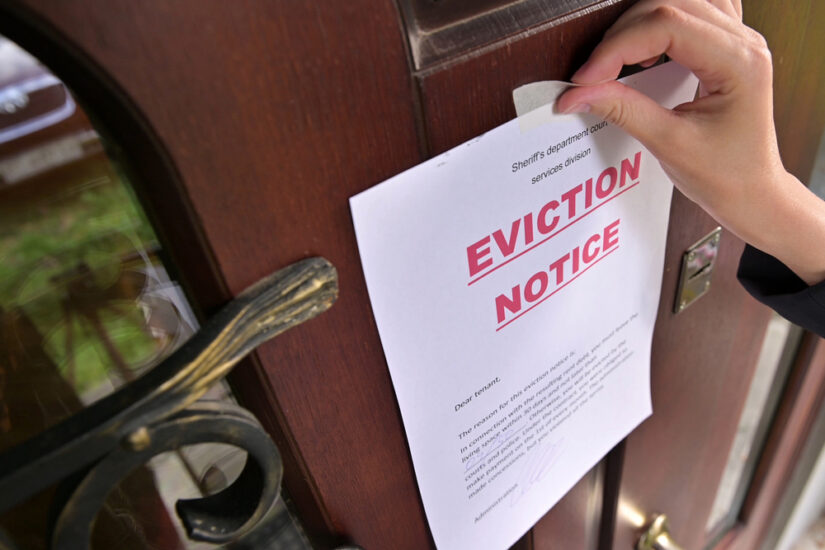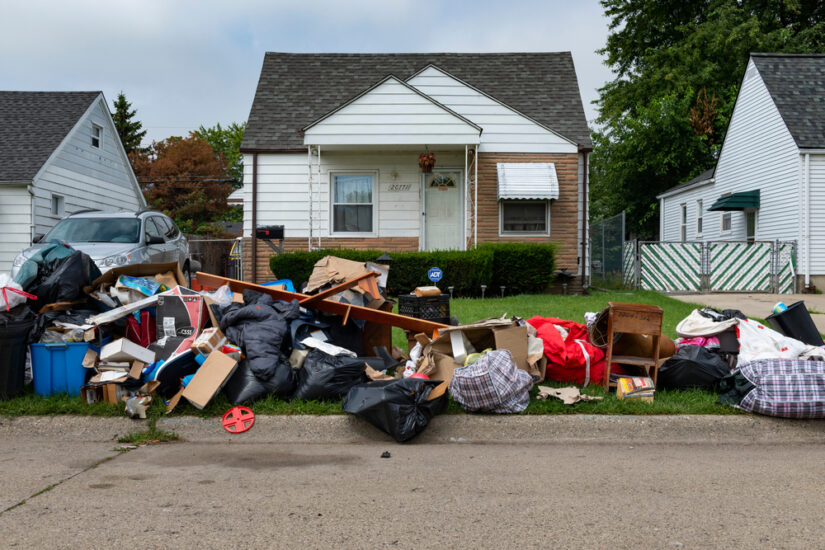Getting evicted is one of the worst things that can happen to anyone. Housing is the most basic need a person has. Landlords and property management companies depend on their tenants to pay the rent to keep their businesses running and to make their investments worthwhile.
Whether you are a tenant or a property owner, it is important to know the landlord-tenant laws in Philadelphia and know how an eviction process is supposed to work.
Stoner Law can provide you with a real estate attorney in Philadelphia. We represent both property owners and renters in the City of Brotherly Love. We work on residential and commercial tenant and landlord disputes. We can also provide you with a Philadelphia foreclosure lawyer if you are about to lose a home you own.

Why Evictions Happen
The most common reason for eviction in Philadelphia is non-payment of rent. However, that is not the only reason someone might get kicked out of their apartment. If the tenant violates any rules specifically laid out in the lease, the landlord may start eviction procedures as well.
Why You Need an Attorney
Evictions are very expensive for both the landlord and the tenant. If you are a landlord, You must know the proper notifications to post on the tenant’s door, and you must know the proper intervals you must wait before taking each step in an eviction.
You will have to pay an eviction filing fee. You may also have to pay summons servers. You must fill out all your paperwork properly and follow the law to the letter. An attorney can assist you and guide you through the process. The attorneys at Stoner Law have years of experience with the eviction process.
If you are a tenant, eviction will often leave you homeless and may follow you around for the rest of your life. Some organizations can assist you with paying rent. Certain hardship cases can protect you from eviction, at least temporarily. A landlord and tenant lawyer can assist you with avoiding eviction until you can pay.
The Steps to an Eviction in Philly
When a landlord and tenant sign a new lease, the lease will state the day that the rent is due. In most cases, rent will be due on the 1st day of the month and considered late on the 5th.
First Notice
If the tenant does not pay rent by the due date specified on the lease, a landlord can give the tenant notice that they will proceed with an eviction if they are not paid rent within 10 days. The landlord can hang the notice on the tenant’s door in an obvious place or they can simply hand the tenant the notice. The notice must state the date by which the landlord wants the tenant to either move out or pay up.
If a landlord wants to evict a tenant for not following the terms of the lease, they must give an initial 15-day notice if the tenant is under a lease that is less than a year. They must give a 30-day notice if the lease term is for one year or longer.
Court Complaint
If the tenant does not either pay or move by the deadline, the landlord will be able to file a formal complaint with the municipal court. The court will set a date for an eviction hearing and issue a writ to the landlord. The writ is a notice to appear in court. It will be hung on the tenant’s door, mailed to them, or handed to them. Filing this complaint will cost around $150 depending on the amount of the rent.
A court date will normally be set about 10 days out. Both sides will be able to present any evidence that they have at the hearing. The judge will rule either in favor of the tenant or the landlord. In most cases, they will rule in favor of the landlord. The losing party will have 10 days to appeal the decision.
Physical Eviction
If the judgment is in favor of the landlord and the tenant fails to win an appeal, the landlord can then proceed with an actual physical eviction. They will get a writ of possession telling the tenant to pay or leave. If the tenant still does not pay, the sheriff will hang a final notice on the tenant’s door. The tenant will then have 24 hours to vacate the property or be physically thrown out.

Rights of the Tenant
Philadelphia is a very liberal city when it comes to evictions. Low-income renters in certain areas of town are legally entitled to a free attorney. This is part of the city’s Right to Counsel program.
Proving Rental Agreement Violations in Court
Things get more complicated if the tenant is being evicted for anything but non-payment of rent. A landlord may always choose not to extend the tenant’s lease. However, a tenant may fight back and say that the landlord is discriminating against them for one reason or another. They may say that they are being asked to leave due to their age, race, sexual orientation, religion, creed, or color. No landlord may ever discriminate against anyone for these reasons.
According to eviction law, if a Philadelphia landlord states that the tenant violated a portion of their lease, they will have to prove it.
A lease provision is often not as clear-cut as it may initially seem. For example, a lease may state that a person may not have pets in their unit. However, if a person has a note from a doctor stating that their animal provides emotional support or is a service animal, a landlord may not charge them pet rent and they must allow the animal to live there.
Moving a tenant who violated a portion of their lease can be very difficult. For example, Pennsylvania law states that you can only have two people per bedroom in a residential home. Hence, if a property owner is renting out a two-bedroom home, they can have four people living there. If the landlord catches a tenant renting out their sofa to a fifth person, the landlord would have legal grounds to evict that tenant. However, proving that that person lives there permanently may be difficult.
If you have security cameras in the hallways of the building, you would have to watch all the tapes to monitor the comings and goings in that particular apartment. It would not be worth your time.
Why You Should Hire Stoner Law
Stoner Law can help you collect evidence if you are a property owner who needs to throw out a problem tenant. If you are a renter accused of a lease violation, we can represent you In landlord-tenant court. We are experienced disputes and litigation attorneys.
You need legal representation whether you are a property owner or tenant. When you Google Philadelphia real estate law, dozens of law offices will come up. However, many of them do not have the experience of the attorneys at Stoner Law. Our law firm focuses on real estate issues. We have a team of trained legal assistants and paralegals who are ready to research your case. Our attorneys write air-tight leases and fight tenaciously for our clients at eviction complaint hearings. Call us today.

